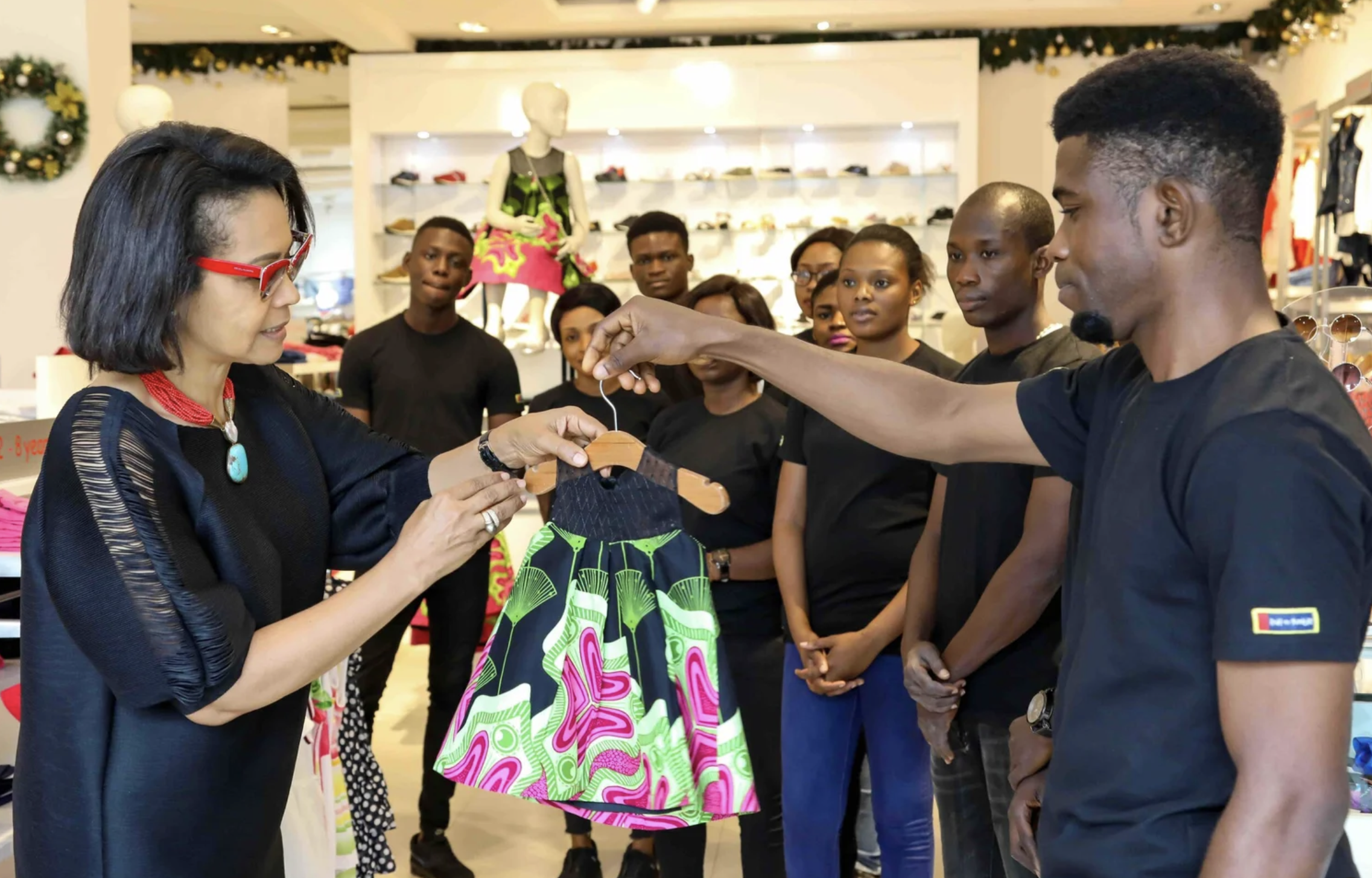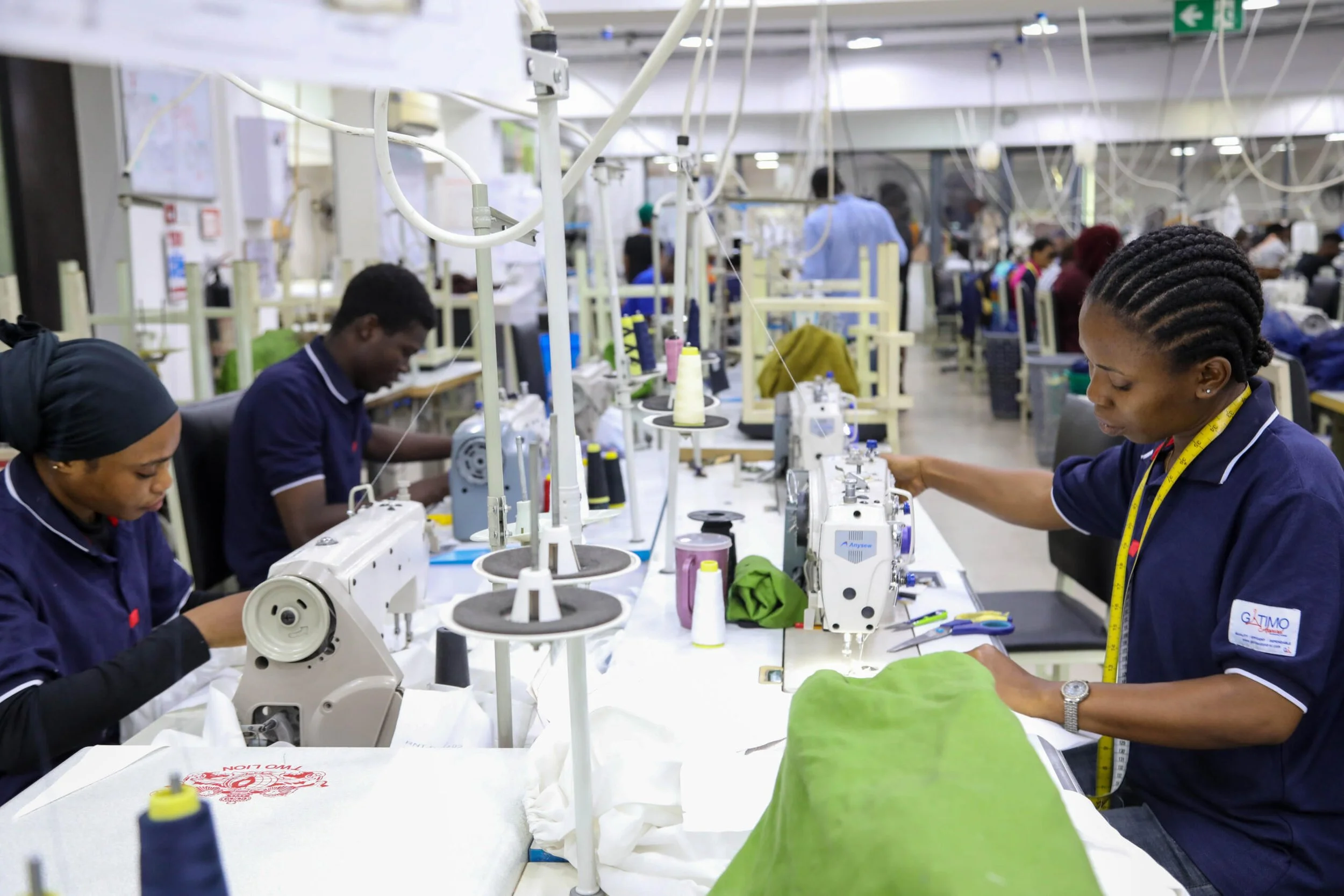Threads of Legacy: The journey of Adenike Ogunlesi in Fashion
From car boot entrepreneur to continental fashion architect
How one tenacious's search for quality children's pajamas sparked a million dollars company and redefined Nigerian manufacturing excellence
In 1996, in Lagos, a young mother named Adenike Ogunlesi faced a problem that would ultimately transform an entire country's approach to children's fashion. She simply needed quality pajamas for her three children—something durable, beautiful, and reasonably priced. What she discovered was a market gap so profound it would become the foundation of Nigeria's most successful children's fashion company.
Twenty-nine years later, Mrs. Adenike "Nike" Ogunlesi stands as Nigeria's foremost children's fashion entrepreneur, having built a million dollars business ecosystem that serves over one million children across Nigeria. Her journey from selling handmade pajamas from her car boot to commanding 300+ employees across 17 retail outlets represents more than entrepreneurial success—it exemplifies the strategic transformation of African business from survival-mode operations to competitive enterprises.
Mrs Adenike with her team in one of her stores
The genesis of authentic innovation
Born in Oxford, England, to a Nigerian father and Scottish mother, Ogunlesi's multicultural heritage instilled a global perspective that would prove instrumental in her business philosophy. Raised in Ijebu-Ode, Nigeria, she was profoundly influenced by her Scottish mother, Betty Okuboyejo, who pioneered the 'Betti-O' fashion label, creating distinctive Adire fabric clothing when Western fashion dominated the market.
The pivotal moment came during Nigeria's 1996 rainy season. The cotton, colorful, lace-trimmed pajamas with Peter Pan collars that Ogunlesi created for her children were unlike anything available in the Nigerian market. When her sister-in-law ordered seven pairs, she recognized a significant opportunity. Her informal market survey revealed that children's clothing was "very restricted, with bland colors and limited creativity".
This insight became her competitive differentiation strategy: offering mix-and-match separates rather than rigid three-piece outfits. From fewer than 20 employees, she initially produced for a supermarket corner space before pursuing direct retail control to maintain quality presentation standards.
Strategic scaling and market development
Ogunlesi's business trajectory reflects methodical strategic thinking rather than opportunistic expansion. After opening her first dedicated retail store in 1998—measuring just "four meters by six meters"—she systematically built infrastructure:
Technology Integration:
Introduced computerization and Enterprise Resource Planning (ERP) systemsCustomer Relationship Management:
Implemented comprehensive data collection, text messaging, and personalized follow-up strategiesGeographic Expansion:
Sequential market entry across Lagos, Abuja, Port Harcourt, Ibadan, and Kano
A pivotal moment occurred during a Lagos Business School lecture when the instructor challenged students: "Are you going to be that small business that remains the same 30 years later?" Her immediate response: "Never! That can't happen to me, not in a million years".
By 2015, Ruff 'n' Tumble operated 15 stores across five cities, targeting "aspirational" and "professional" Nigerian parents. The brand developed a reputation for durable, quality clothing designed for hand-me-down longevity—a critical value proposition for African families.
Vertical integration and manufacturing excellence
Understanding that sustainable competitive advantage required production control, Ogunlesi established Gatimo Apparel Manufacturing, a state-of-the-art facility with hundreds employees. This vertical integration strategy provides:
Contract manufacturing for high-quality garments to global standards
Diversified product lines: Fashion items, corporate uniforms, school uniforms, bedsheets, coveralls, medical scrubs
Local and global manufacturing capabilities
Agile production capacity: Successfully re-engineered to produce PPE during COVID-19 lockdowns
Current production capacity reaches 1,500+ garments daily, positioning the facility as a significant manufacturing asset within Nigeria's industrial landscape.
Social impact through skills development
Beyond commercial success, Ogunlesi established the Betti-Okuboyejo Foundation, named after her mother, which has graduated over 200 young people in garment making and entrepreneurship. The foundation provides:
Technical skills: Garment making and fashion design
Business skills: Entrepreneurship and financial management
Government partnership: Collaboration with Lagos State Government providing N250,000 loans to graduates at 5% interest with three-month moratorium
This initiative demonstrates her commitment to ecosystem development rather than isolated business success.
Corporate governance and industry leadership
Despite he extensive track record in fashion, Mrs Ogunlesi's influence extends beyond her direct business operations through strategic board positions:
Lafarge Africa Plc: Non-Executive Director (2015-present)
Unilever Nigeria Plc: Independent Non-Executive Director (March 2025)
Network of Entrepreneurial Women (NNEW): Founding President
Garment and Accessories Manufacturers of Nigeria (GAMAN): Board member
Her March 2025 appointment to Unilever Nigeria reflects growing recognition of her strategic leadership capabilities across consumer goods sectors.
Vision for continental manufacturing transformation
The most compelling in her trajectory is certainly advocacy for systemic industrial transformation across Nigeria. She argues that Nigeria should focus on garment manufacturing as low-hanging fruit for job creation rather than expensive textile production. Her strategic vision addresses practical realities:
Raw Material Strategy:
With 95% of raw materials imported, she advocates for textile imports as raw materials to enable competitive garment manufacturing rather than attempting domestic textile production.
Global Manufacturing Positioning:
"We're two weeks away from the UK, two weeks away from America. Why are we not producing for Calvin Klein? Why are we not producing for Macy's?" This reflects her ambition to position Nigerian manufacturers as global suppliers rather than just local producers.
Industrial Hub Development: She advocates for industrial hubs with scale manufacturing to reduce costs through volume production, similar to China's model. Her vision includes garment production hubs where companies can co-locate for export-oriented manufacturing.
Gatimo Apparel Manufacturing
Strategic principles for african entrepreneurs
Mrs Ogunlesi's success reflects several core principles relevant to contemporary African business development:
Customer-Centric Innovation: Solving real problems with creative solutions rather than following market trends
Quality Differentiation: Building premium positioning through superior product quality and durability
Vertical Integration: Controlling quality and costs through manufacturing ownership
Strategic Patience: Scaling thoughtfully rather than pursuing rapid expansion at all costs
Continuous Learning: Investing in management education and professional development
Her entrepreneurial philosophy emphasizes authentic self-discovery: "Find your authentic self—everybody else is taken. Find out who you are, what your purpose is, what you like doing, what you are passionate about—and then go after it with everything in your total being".
Lessons for the Creative Economy
Mrs. Adenike Ogunlesi's journey offers profound insights for Africa's creative industries. Her transformation from frustrated consumer to continental industry leader demonstrates that authentic African businesses can achieve international standards while creating substantial employment, developing local skills, and influencing policy frameworks.
Her advocacy for positioning West Africa as an integrated fashion manufacturing hub leveraging geographic advantages, demographic dividend, cultural authenticity, and economic integration provides a roadmap for regional development. The infrastructure development priorities she champions—reliable power, efficient transportation, manufacturing-friendly financial systems, and aligned skills development—represent systemic requirements for creative industry success.
Most importantly, her character-first approach to entrepreneurship—believing that "the woman I was becoming was far greater than the results I was looking to achieve"—reminds us that sustainable business success requires personal growth, resilience, and authentic purpose beyond profit maximization.
In an era where African creativity is gaining global recognition, Mrs. Adenike Ogunlesi's legacy extends far beyond fashion retail. She has architected a blueprint for transforming African heritage into global wealth while maintaining cultural authenticity and community empowerment.
Her story is not just about building a successful business—it's about weaving a continental future where African entrepreneurs lead global industries while serving local communities.

